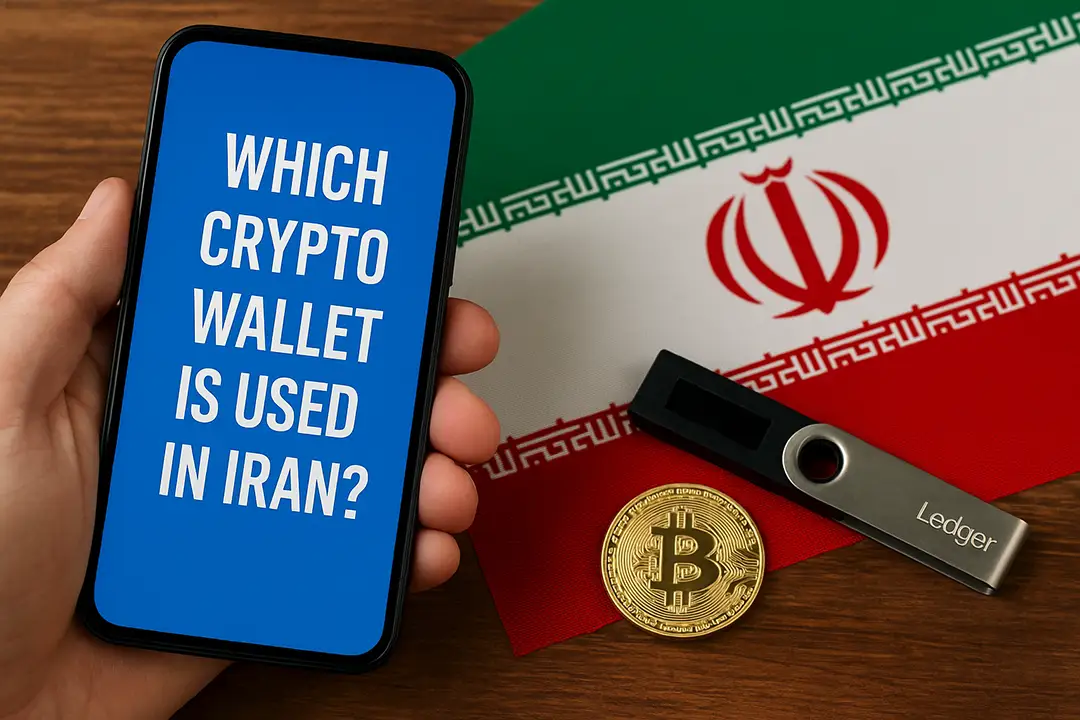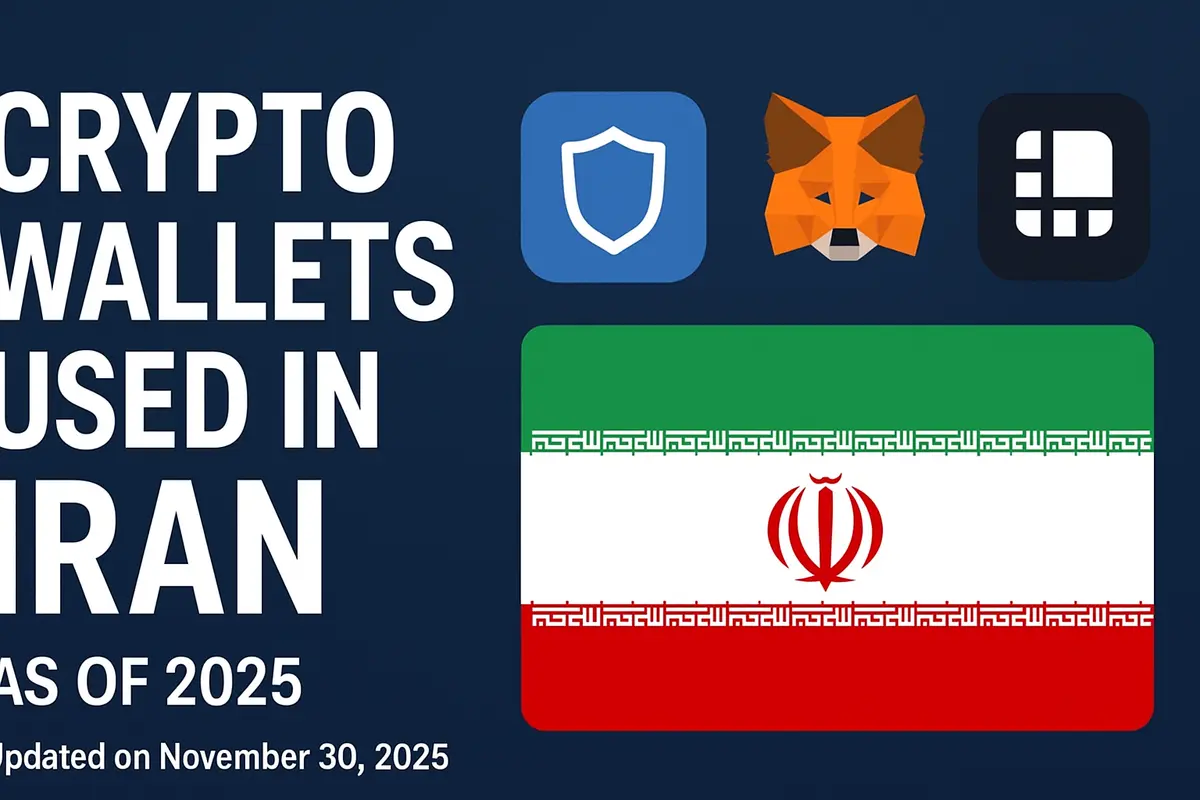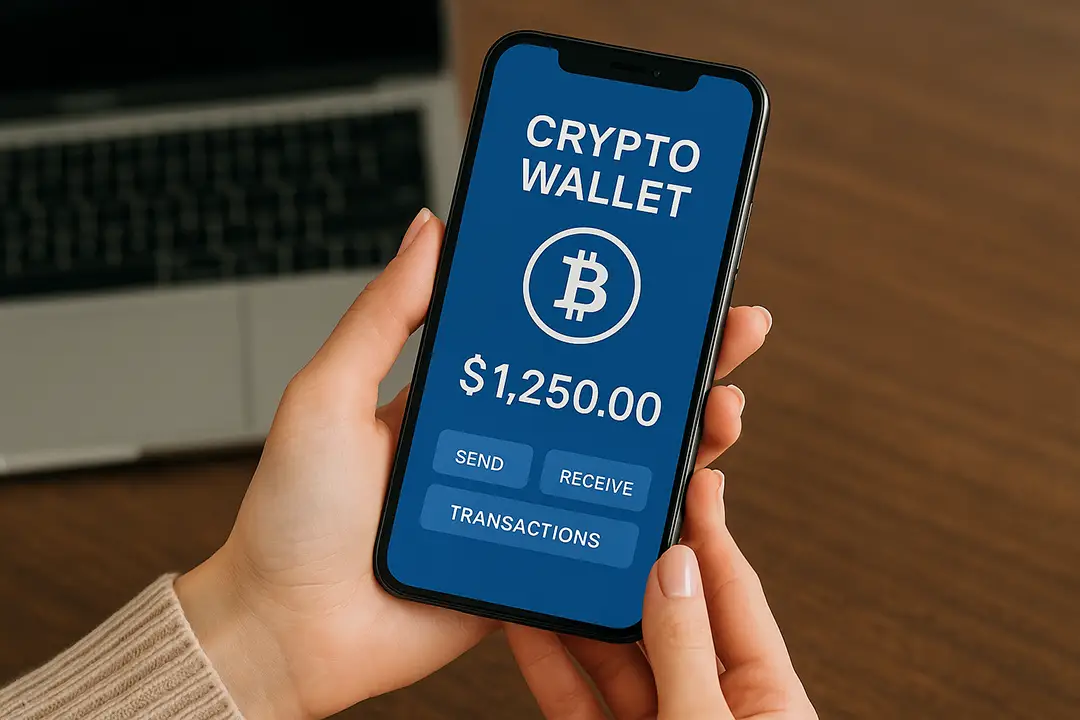Which Crypto Wallet Is Used in Iran?(2025 Guide + Secure Options)
Your 2025 Guide to the Most Trusted Crypto Wallets in Iran

As cryptocurrency adoption continues to rise globally, Iranian users are also finding new ways to store, send, and secure their digital assets—despite ongoing international sanctions and access restrictions. But which crypto wallet is actually used in Iran today, and what are the safest options available to both beginners and experienced investors?
In this guide, (Crypto Wallet Is Used in Iran) we explore the most popular crypto wallets (both Iranian and foreign) that are actively used inside the country. Whether you’re looking for a cold wallet to protect your long-term savings or a mobile app for quick transactions, this article breaks down the best tools currently trusted by Iranian crypto users.
🔗 Don’t forget to check out our full Iran Crypto Exchange List for the most updated exchanges operating in or serving users in Iran.
Why Choosing the Right Wallet Matters in Iran
Unlike users in countries with stable access to international services, Iranian crypto users face multiple challenges:
-
Sanctions and blocked IPs
-
Restrictions on app stores like Google Play and App Store
-
Limited access to some hardware wallets and Web3 services
-
Unreliable access to international banking systems
This means that choosing the right crypto wallet in Iran isn’t just about convenience—it’s a matter of security, accessibility, and financial independence.
Types of Crypto Wallets Used in Iran
1. Mobile Wallets (Hot Wallets)
Mobile wallets are the most popular in Iran due to their ease of access, availability on Android, and relatively simple user interface.
🔹 Trust Wallet
-
Type: Hot wallet
-
Supports: 70+ blockchains including Ethereum, BNB, Bitcoin
-
Why it’s popular in Iran: Decentralized, no KYC, accessible via APK even if banned in local app stores
-
Risk: Private key responsibility is entirely on the user
Trust Wallet is widely used in Iran for both storing and staking crypto. Many users sideload the APK version if it’s blocked in the Play Store.
🔹 Metamask
-
Type: Ethereum-focused wallet with Web3 support
-
Used for: DEXs, NFTs, DeFi
-
Why it’s used in Iran: Metamask doesn’t require personal info and supports VPNs and extensions
-
Challenge: Some RPC providers like Infura have blocked Iranian IPs, but users bypass this using custom RPCs or VPNs
Tip: Iranian users often configure Metamask with custom RPC nodes to access services blocked via Infura or Alchemy.
2. Desktop Wallets
🔹 Exodus Wallet
-
Type: Desktop and mobile wallet
-
Why it’s favored: Beautiful UI, no KYC, built-in exchange features
-
Supported Assets: Over 150+
-
Limitations: Centralized structure, but still accessible
Exodus is favored by mid-level traders and hodlers who want a safer alternative than mobile wallets without moving to hardware.
3. Cold Wallets / Hardware Wallets
Despite the difficulty of importing hardware wallets to Iran, some users go the extra mile to ensure security.
🔹 Ledger Nano S / X
-
Challenge: Cannot be purchased directly due to sanctions
-
Solution: Smuggled into Iran or bought through third-party vendors in Turkey or Dubai
-
Advantage: Offline storage with secure chip protection
-
Warning: Some fake Ledgers have been found in the black market—verify authenticity!
🔹 Trezor
-
Same as Ledger, but open-source. Also popular among Iranian users with access to cross-border buying methods.
4. Iranian-Built Crypto Wallets
Due to rising demand and international restrictions, a few Iranian developers have created domestic crypto wallets:
🔹 Ramzinex Wallet
-
Integrated with their exchange
-
Offers a basic UI with support for Tether (USDT), Bitcoin, Ethereum, and Tron
-
Centralized and custodial
🔹 Nobitex Wallet
-
Built into Iran’s most used exchange
-
Offers quick in/out options for traders
-
Not a standalone wallet; funds are stored within the exchange itself
Although these wallets are not truly decentralized, they remain popular among Iranian users for their simplicity and integration with local fiat payment systems.
📌 Visual Wallet Comparison
Want a quick view? Here’s a comparison of the most common crypto wallets used in Iran based on security, accessibility, and KYC policies.

Legal Status of Crypto Wallets in Iran
While cryptocurrency trading is still a grey area in Iran, holding and mining cryptocurrencies like Bitcoin is not illegal. However, banks and financial institutions are not allowed to deal with crypto directly. This makes non-custodial wallets especially important for privacy and control.
Iranian users prefer wallets that:
-
Do not require KYC
-
Are open-source or self-custodial
-
Can be accessed without location restrictions
Risks of Using Crypto Wallets in Iran
-
Fake apps and phishing scams
Some fake versions of Trust Wallet or Metamask in Persian have targeted Iranian users. -
IP and service blocking
Even decentralized wallets may use centralized RPCs or services that restrict Iran. -
Exchange-wallet confusion
Some users mistake exchange balances as “wallets.” If the exchange shuts down or gets sanctioned, access may be lost. -
Device security
Without proper phone or PC security, even a great wallet won’t protect your assets.
How Iranians Protect Their Crypto
Because of the unique risks, Iranian crypto holders often take extra steps:
-
Use VPNs and proxies to avoid IP tracking
-
Store seed phrases offline or in cold wallets
-
Use multi-wallet strategies (e.g. Metamask for DeFi, Trust Wallet for trading)
-
Keep crypto in USDT (TRC20) for lower fees and better transfer ability
As of late 2025, Iranian crypto users are increasingly adopting multi-wallet strategies, combining hot, cold, and exchange-linked wallets to maximize security and accessibility. Recent updates in local exchange platforms like Nobitex and Ramzinex have improved in-app wallet features, faster USDT transfers, and support for additional blockchain assets. Keeping an eye on these changes helps users stay ahead in managing digital assets safely and efficiently.
What Wallet Should You Use in Iran?
Here’s a quick breakdown based on user needs:
| User Type | Recommended Wallets | Reason |
|---|---|---|
| Beginner | Trust Wallet, Exodus | Easy to use, no KYC |
| DeFi/NFT User | Metamask + VPN | Web3 integration |
| Security-focused | Ledger, Trezor | Best for long-term holding |
| Fast-trader | Ramzinex, Nobitex | Integrated with Iranian exchanges |
| Privacy-seeker | Electrum (Bitcoin-only) | Highly secure and lightweight |

Final Thoughts: Wallet Choice in Iran Is a Matter of Control
The key takeaway? In Iran, a good crypto wallet is your gateway to digital sovereignty. Whether you’re escaping financial restrictions, investing for the long run, or simply trading assets, the wallet you choose will define your experience—and possibly your financial safety.
With wallets like Trust Wallet, Metamask, and Ledger remaining popular and adaptable, and with Iranian options like Nobitex and Ramzinex gaining ground, Iranian users have a growing range of tools. But it’s not just about what works—it’s about what protects.
🟡 And if you’re ready to dive deeper into where Iranians are actually trading crypto, don’t miss our full Iran Crypto Exchange List — a constantly updated guide to working platforms.

Common Questions: Wallet Access in Iran
Many Iranian users face unique challenges in accessing global crypto services. Below are some frequently asked questions that highlight real concerns—and practical solutions:
🟡 Is there a crypto wallet ban in Iran?
There is no official crypto wallet ban in Iran, but some services are indirectly restricted through IP blocks or app store removals. For example, Trust Wallet or Metamask may not appear in the Iranian version of the Play Store, requiring users to sideload APKs.
🟡 What is the best non-KYC wallet for Iranians?
For users who value privacy, the best non-KYC wallets for Iranians are Trust Wallet, Metamask, and Electrum (for Bitcoin-only users). These wallets don’t require identity verification and allow full control of private keys.
🟡 How to access Metamask in Iran?
Some Iranian users report RPC errors when trying to use Metamask, due to restrictions from providers like Infura or Alchemy. The solution is to use a VPN and configure a custom RPC such as from Ankr, Pokt Network, or Chainstack. This is a common workaround for those wondering how to access Metamask in Iran.
🟡 Which USDT wallets are popular in Iran?
Tether (USDT), especially in the TRC20 format, is the most used stablecoin in Iran due to low fees. A reliable USDT wallet in Iran would be Trust Wallet, Exodus, or any wallet integrated with Nobitex or Ramzinex.
🟡 Can I use Iranian crypto wallet APKs safely?
Some users search for Iranian crypto wallet APK files online when access through app stores is blocked. While this can work, it’s critical to verify the APK’s source to avoid phishing or malware. Always download from official exchange websites or trusted sources.
This guide helps you find the best crypto wallet in Iran and stay informed about the crypto wallet market in the country.”
🔄 Updated on November 30, 2025
Read more: https://myindustry.ir/en/comprehensive-iran-crypto-exchange-list








این اطلاعات رو پاک کن داداش.هرچیزی رو که نباید به زبان انگلیسی منتشر کنی در فضای جهانی
Hey, I understand your concern, but it’s a misconception that publishing this information in English automatically exposes sensitive data. Our content is optimized with AI tools and only uses publicly available information, so nothing confidential is being shared globally.